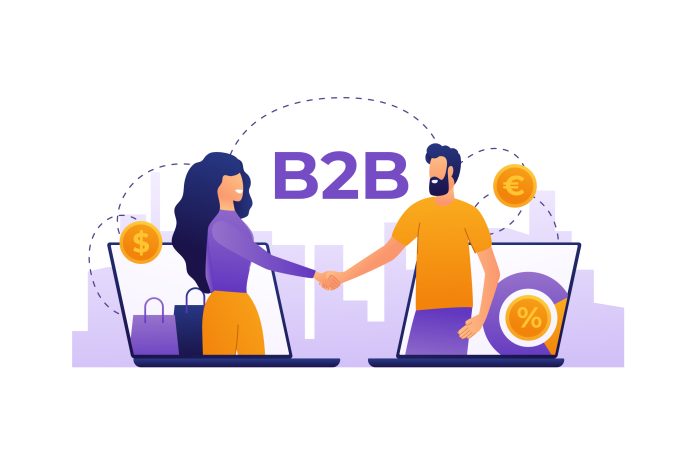In the rapidly evolving landscape of business-to-business (B2B) commerce, the efficiency of supplier onboarding has emerged as a critical factor in enhancing the overall B2B marketplace experience.
As companies increasingly rely on digital platforms to facilitate their procurement processes, optimizing supplier onboarding has become essential for achieving operational excellence, fostering collaboration, and maximizing the value of B2B marketplace relationships.
The Significance of Supplier Onboarding
Supplier onboarding refers to the process of integrating new suppliers into a B2B marketplace or procurement system. It involves various steps, including verification of supplier credentials, compliance checks, contract negotiations, and data synchronization.
A seamless onboarding experience not only accelerates the time-to-market for new products and services but also ensures a robust supply chain, reduces risks, and enables businesses to respond more effectively to market demands.
In the context of the B2B marketplace, where multiple suppliers interact with various buyers, supplier onboarding excellence is crucial for harmonizing the diverse needs of all stakeholders. Effective onboarding lays the foundation for strong business relationships and long-term collaboration.
The B2B marketplace enables suppliers to showcase their offerings, capabilities, and credentials, while buyers gain access to a broader array of potential partners. Consequently, a well-executed onboarding process can lead to increased innovation, reduced costs, and improved market competitiveness.
Challenges in Supplier Onboarding
Despite its importance, supplier onboarding is not without challenges. The complexity of B2B marketplace transactions, varying compliance requirements across industries, and the need for interoperability between different systems can make the process cumbersome. Moreover, the manual nature of many onboarding procedures can lead to errors, delays, and inefficiencies.
Data Accuracy and Integration
Supplier data often resides in different formats and systems. Integrating this data accurately is crucial for ensuring smooth operations. Automated data synchronization mechanisms are necessary to prevent discrepancies and data silos.
Compliance and Regulations
In the B2B marketplace, different industries and regions have distinct compliance regulations. Ensuring that suppliers meet these requirements is essential for maintaining legal and ethical standards.
Communication
Clear communication between buyers and suppliers is vital during onboarding. Misunderstandings can lead to delays, subpar relationships, and even contractual disputes.
Scalability
As marketplaces expand, handling an increasing number of suppliers can strain existing onboarding processes. The system must be scalable to accommodate growth without sacrificing efficiency.
Streamlining the Supplier Onboarding Experience


In the B2B marketplace key to achieving supplier onboarding excellence lies in streamlining the process through the strategic application of technology, automation, and effective communication. By addressing the challenges and implementing best practices, businesses can create a seamless onboarding experience that drives operational efficiency and enhances collaboration.
Digital Platforms and Automation: Implementing digital platforms that facilitate automated supplier onboarding can significantly improve efficiency. These platforms can validate supplier information, perform compliance checks, and initiate contract negotiations using predefined workflows.
Centralized Data Repository: Maintaining a centralized repository for supplier information simplifies data management. Cloud-based solutions enable real-time access to data, reducing duplication and errors.
Standardized Processes: Establishing standardized onboarding procedures ensures consistency and reduces ambiguity. By defining clear steps and responsibilities, businesses can avoid miscommunication and expedite the onboarding timeline.
Collaborative Tools: Providing suppliers with access to collaborative tools fosters effective communication. Online portals or communication channels enable smooth interaction, clarifications, and quick issue resolution.
Analytics and Reporting: Incorporating analytics into the onboarding process allows businesses to track key performance indicators (KPIs). Insights gained from data analysis can drive continuous improvement and informed decision-making.
Training and Support: Offering training resources to suppliers on how to navigate the onboarding process can enhance their experience. Additionally, providing dedicated support for troubleshooting issues can prevent frustration and delays.
Scalability Considerations: When selecting an onboarding solution, scalability should be a primary consideration. The system should accommodate increasing numbers of suppliers without compromising performance.
Integration Capabilities: The onboarding solution should seamlessly integrate with existing systems such as Enterprise Resource Planning (ERP) software, Customer Relationship Management (CRM) systems, and procurement platforms.
Benefits of Supplier Onboarding Excellence Investing in supplier onboarding excellence yields numerous benefits that extend beyond the initial stages of collaboration.
Faster Time-to-Market: Streamlined onboarding processes enable suppliers to introduce their products and services to the market more quickly, giving them a competitive edge.
Operational Efficiency: Automated workflows and standardized processes reduce manual intervention, leading to fewer errors, faster processing times, and reduced operational costs.
Enhanced Collaboration: Smooth onboarding fosters collaboration between suppliers and buyers. Clear communication and shared understanding lead to stronger partnerships.
Risk Mitigation: Thorough compliance checks and due diligence reduce the risk of partnering with non-compliant suppliers, safeguarding a company’s reputation and legal standing.
Innovation: A well-organized onboarding process attracts innovative suppliers. Businesses can tap into new ideas and technologies that can drive product and service improvements.
Data-Driven Insights: Analyzing onboarding data provides insights into supplier performance, helping businesses make informed decisions about their partnerships.
Market Competitiveness: Businesses with efficient onboarding processes are better positioned to adapt to changing market demands, giving them a competitive advantage. Case
Study: Amazon Business, the B2B marketplace arm of Amazon, exemplifies the impact of streamlined supplier onboarding. The platform connects millions of buyers with a diverse array of suppliers, catering to a wide range of industries. Amazon Business’s success can be attributed to its meticulous approach to supplier onboarding
Simplified Registration: Amazon Business offers an easy registration process for suppliers, minimizing barriers to entry and encouraging participation.
Verified Seller Program: The platform offers a Verified Seller program, where suppliers undergo rigorous checks to verify their legitimacy and product quality.
Robust Communication: Amazon Business facilitates direct communication between buyers and sellers, enabling quick responses to inquiries and order management.
Integration Capabilities: The platform integrates with popular procurement systems, allowing buyers to seamlessly incorporate Amazon Business into their existing workflows.
Data-Driven Insights: Amazon Business provides sellers with analytics and reporting tools to monitor sales performance and identify areas for improvement.
Looking Ahead: Future Trends in Supplier Onboarding The evolution of technology continues to shape the landscape of supplier onboarding. Several trends are poised to shape the future of this critical process.
Artificial Intelligence (AI) and Machine Learning: AI and machine learning algorithms can automate more complex tasks, such as analyzing supplier performance, predicting potential issues, and suggesting optimal supplier matches.
Blockchain for Trust and Transparency: Blockchain technology can enhance trust and transparency in supplier onboarding by securely verifying supplier credentials, certifications, and compliance data.
Predictive Analytics: Advanced analytics can predict supplier behavior, enabling businesses to proactively address potential disruptions and optimize procurement strategies.
Personalized Onboarding Experiences: Tailoring the onboarding experience based on the unique needs of suppliers can enhance engagement and relationship-building.
Regulatory Compliance Automation: AI-powered tools can keep track of changing regulations and automatically adjust compliance checks accordingly, reducing the risk of non-compliance.
Conclusion
In the dynamic world of the e-commerce B2B marketplace, supplier onboarding excellence is a cornerstone of success. By streamlining the onboarding process through digital platforms, automation, and effective communication, businesses can achieve operational efficiency, enhance collaboration, and drive innovation.
As technology continues to advance, the future of supplier onboarding holds the promise of even greater efficiencies, deeper insights, and stronger partnerships. Embracing these trends and best practices will enable businesses to navigate the evolving B2B marketplace landscape with confidence, ensuring a seamless and rewarding marketplace experience for all stakeholders involved.





